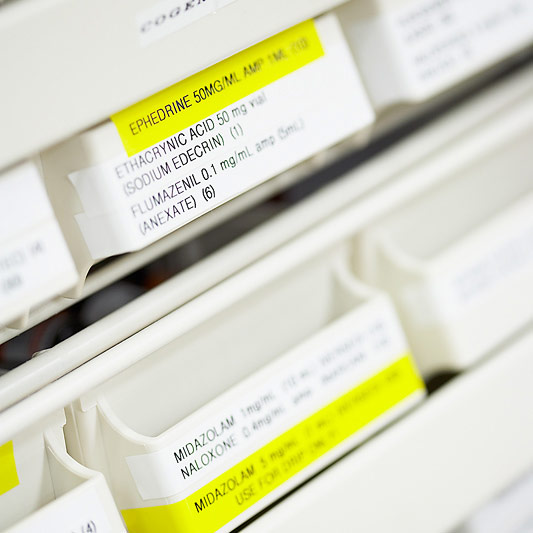
WEDNESDAY, Aug. 18 (HealthDay News) — An experimental drug for metastatic melanoma prolonged median survival from 6.4 months to 10 months, which, although seemingly small, represents a significant extension of life for this normally intractable disease, a new study found.
And a subgroup of patients given the drug, known as ipilimumab, lived as long as six years, according to research published in the Aug. 19 issue of the New England Journal of Medicine.
This type of skin cancer has an average survival time of six to nine months.
“This is the first drug that’s ever been shown in a randomized, controlled trial to offer a survival benefit for patients,” said study lead author Dr. F. Stephen Hodi, director of the melanoma disease center at Dana Farber Cancer Institute in Boston.
The findings were first reported in June at the annual meeting of the American Society of Clinical Oncology in Chicago. The study was funded by Bristol-Myers Squibb and its biotechnology subsidiary Medarex, which makes ipilimumab.
Only two drugs have been approved by the U.S. Food and Drug Administration to treat melanoma that has spread beyond its original site: interleukin 2, or IL-2, and dacarbazine. IL-2 is a drug that affects the immune system while dacarbazine is a chemotherapy agent.
There have been no new FDA approvals of drugs for metastatic melanoma in more than a decade.
Ipilimumab is a human monoclonal antibody, which targets an antigen known as CTLA-4 that is found on the surface of T cells, which are blood cells that protect the body from infection.
CTLA-4 inhibits the immune system and “ipilimumab releases the brakes to the immune system,” Hodi explained. That way, T cells are free to move throughout the body and attack the melanoma cells.
For this study, 676 patients with advanced melanoma were randomly chosen to receive either ipilimumab plus gp100 (an experimental vaccine that had previously shown some benefit in melanoma cases), ipilimumab alone, or gp100 alone. The study did not have a normal control group in which the survival of patients on ipilimumab was compared to the survival of patients on standard treatment.
Participants received a total of four infusions, at three-week intervals, a much shorter course of therapy than currently available, the study authors said.
“With melanoma there are few approved options for therapy and when we use agents like chemotherapy, people are on drugs forever and there’s [only] a short-term benefit,” explained Dr. Kari Kendra, a medical oncologist with the Ohio State University Comprehensive Cancer Center – Arthur G. James Cancer Hospital and Richard J. Solove Research Institute in Columbus. “With immune modulators like IL-2 or ipilimumab, there’s a potential for durable responses.”
There was essentially no difference in median survival between the groups taking ipilimumab with or without gp100: about 10 months. This compared with only 6.4 months for those taking gp100 alone, a 68 percent improvement.
“The gp100 vaccine didn’t seem to add much to the treatment,” Hodi said.
But receiving the IV infusion again if the melanoma looked like it was coming back also provided some benefit, Hodi said.
Fifteen percent of patients receiving ipilimumab experienced serious side effects, compared to only 3 percent receiving gp100 on its own. There were 14 deaths related to the drugs used in the study, and seven of the patients died from problems with their immune system, the researchers reported.
The researchers are now focusing their attention on the patients who survived sometimes as long as six years.
“We’re looking at predictive biomarkers to see why some get a greater benefit than others,” Hodi said.
Ipilimumab is not yet FDA-approved, so there’s no price tag associated with it, although Kendra said she “would anticipate it being high.”
More information
The Skin Cancer Foundation has more on melanoma.

